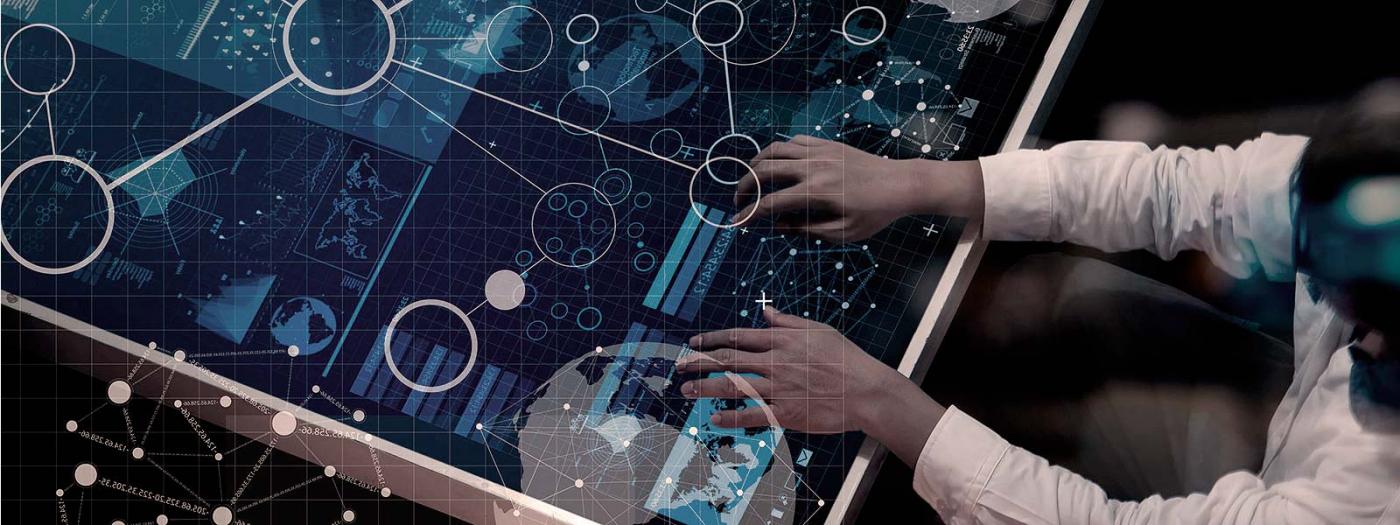Every graduate in Engineering must have a knowledge and mastery of the fundamental principles on which disciplines such as analog and digital communications, signal and image processing, or acoustics are based, among others.
The objective of the subject is to give an introductory and fundamental vision of the mathematical tools that allow analyzing analog and digital signals, converting from the analog to digital world, modeling and representing signal processing systems, or transmitting signals either baseband or modulated, and either in its digital or analog version.
It is a subject, therefore, with a clear mathematical orientation but with a fundamental real and practical application in the field of engineering.
For this reason, during each semester a practical frame of reference will be used where the contents presented throughout all the topics will be contextualized, and that will facilitate the understanding of them by the students.
Titular Professors
Integral calculus and complex numbers.
The Learning Outcomes of this subject are:
LO.1 General knowledge of signal processing and transmission
LO.2 Problem solving
LO.3 Capacity for analysis and synthesis
Semester 1
1. Representation of sinusoidal signals
2. Fourier series
3. Fourier transform
4. Unit impulse function
5. The convolution
6. Invariant linear systems
7. Digitization
Semester 2 (Telecommunications Systems, Telematics, Audiovisual Systems, Electronic Telecommunications Systems)
1. Baseband transmission: motivation and characteristics
2. Analog modulations
3. Digital modulations
4. Random variable and stochastic process
5. Transmission limitations
Semester 2 (Multimedia, ICT Management)
1. Applications of signal processing
2. Source codes
3. Analog and digital modulations
4. Transmission limitations
The course is taught in 2 or 3 teaching sessions each week, totaling 150 minutes per week.
The usual dynamics of each class will consist of a combination of theoretical explanations, usually followed by the performance of exercises that exemplify what has just been explained. Applied methodologies: master class (MD0), problem class and exercises (MD1).
In addition, sessions will be dedicated to the contextualization of the contents in a practical framework (SalleTone and SalleRadio) and to the realization of demonstrations, analysis and visualizations of theoretical concepts using scripts and Matlab functions developed by the teachers with this aim. Applied methodologies: self-paced learning (MD5) and case method (MD13).
The course is organized in two semesters (Fall and Spring terms). To pass the course, the mark of each semester must be greater or equal to five over ten points (either in the regular exam session or in the extra exam session). In this case, your mark of the course will be the arithmetic mean of these two marks. The main exams are:
Fall term
- In January takes place the regular exam of the Fall term.
- In July takes place the remedial exam of the Fall term.
Spring term
- In June takes place the regular exam of the Spring term.
- In July takes place the remedial exam of the Spring term.
The final grade for each semester will be obtained by weighing 70% the exam grade and 30% the continuous assessment grade. The continuous assessment grade must be higher than 3.5 to pass each semester.
Material available in the eStudy:
Class slides.
Collection of solved exercises.
G. Nicolau, "Fourier Analysis".
Reference books (available at the La Salle Library):
A.V. Oppenheim, A.S. Willsky, Signals and Systems, Prentice Hall, 1998
A.B. Carlson, Communication Systems, McGraw-Hill, 1988
Collection of solved exams, Enginyeria i Arquitectura La Salle.
F. Tarrés, `Introducció al Tractament Digital del Senyal´, Bruño/EUETT, 1995.
Papoulis, `Sistemas analógicos y digitales´, Ed. Marcombo, 1978.
A.V. Oppenheim, `Digital Signal processing´, Ed. Prentice-Hall.
J.C. Proakis, D.G. Manolakis, `Introduction to digital signal processing´, Ed. McGraw-Hill, 1975.
